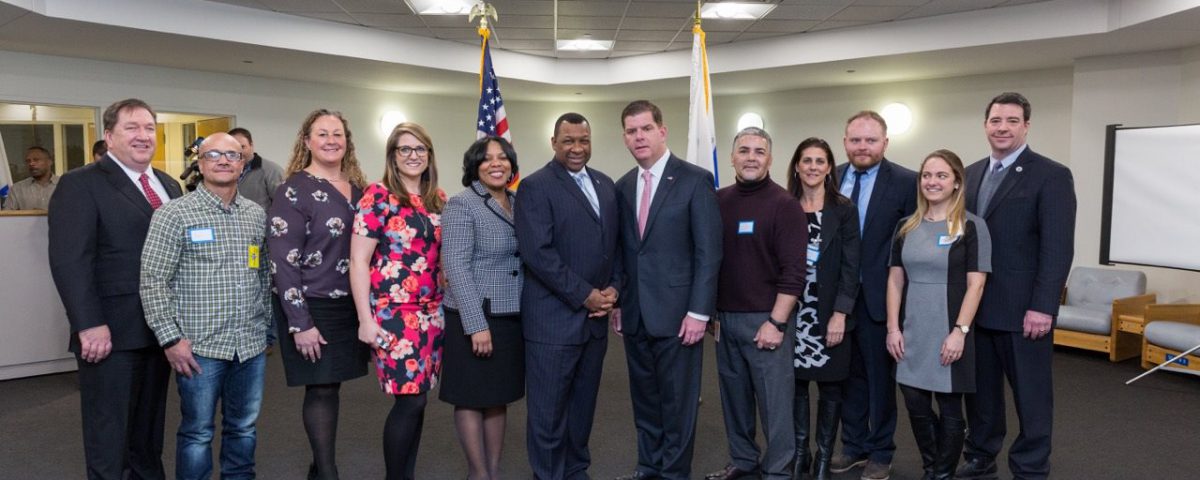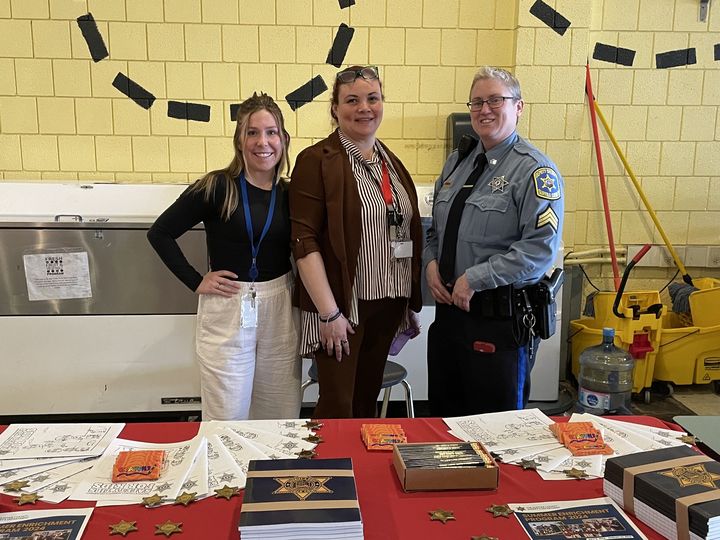- To serve and protect the citizens of Suffolk County.
- (617) 635-1000
- info@scsdma.org
Sheriff Tompkins, Mayor Walsh Launch New Recovery Partnership Program

Sheriff’s Department Coat Program Covers Ex-Offenders During Winter Months
February 5, 2017
Sheriff Tompkins Joins With DA Conley For: “Now You See” Photo Exhibit
March 18, 2017 Suffolk County Sheriff Steven W. Tompkins and Boston Mayor Martin J. Walsh announced the start of a new collaborative program designed to improve the delivery of addiction recovery services to inmates and detainees that will extend beyond the walls of incarceration.
Suffolk County Sheriff Steven W. Tompkins and Boston Mayor Martin J. Walsh announced the start of a new collaborative program designed to improve the delivery of addiction recovery services to inmates and detainees that will extend beyond the walls of incarceration.
The Recovery Partnership is the result of a combined effort between the Suffolk County Sheriff’s Department and the Mayor’s Office of Recovery Services that is designed to support each individual entering the Suffolk County Jail or House of Correction in need of recovery services from substance abuse. The new program includes a series of regular recovery panels at the Suffolk County House of Correction and the Suffolk County Jail through which participants in the program will be connected to community-based service providers prior to their release, and will be guided through the early recovery process, building a successful network of support in the neighborhoods where they live. 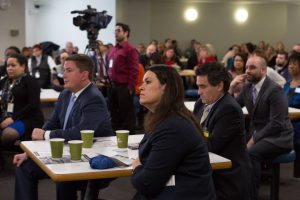 These recovery panels will be held every other week for pre-trial detainees at the Suffolk County Jail and monthly at the House of Correction for sentenced men. There will be a separate monthly panel at the House of Correction for both women who are sentenced and pre-trial.
These recovery panels will be held every other week for pre-trial detainees at the Suffolk County Jail and monthly at the House of Correction for sentenced men. There will be a separate monthly panel at the House of Correction for both women who are sentenced and pre-trial.
Joining a group of addiction recovery and health care providers for the kick-off, held at the Suffolk County House of Correction, Mayor Walsh and Sheriff Tompkins Introduced the Recovery Partnership and spoke about the intended purpose of the new initiative.
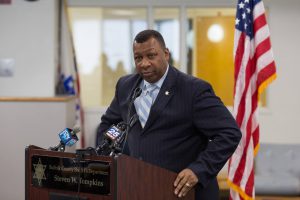 “This Recovery Partnership will mean faster, stronger, and better connections for incarcerated individuals leaving our institutions and reentering their neighborhoods,” said Sheriff Tompkins. “In corrections we know that what we do ‘behind the wall’ is impactful, but we can only do so much. We know that in order for those individuals in our care to be successful in reentering society they must develop strong, meaningful connections with people in their neighborhoods and communities.”
“This Recovery Partnership will mean faster, stronger, and better connections for incarcerated individuals leaving our institutions and reentering their neighborhoods,” said Sheriff Tompkins. “In corrections we know that what we do ‘behind the wall’ is impactful, but we can only do so much. We know that in order for those individuals in our care to be successful in reentering society they must develop strong, meaningful connections with people in their neighborhoods and communities.”
“This program will make our communities and homes safer,” said Mayor Walsh. “This initiative is about giving people second chances, and a fighting chance at recovery. It’s important that we build strong pathways to and from the recovery community, and these pathways must extend to our prisons. I’d like to thank the Suffolk County Sheriff’s Department for their important work, and for partnering with us in this recovery effort. We look forward to continuing to grow this partnership.”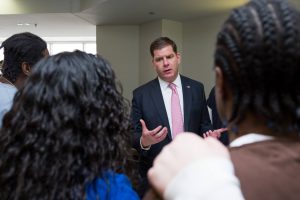
Drawing a tangible connection between the need for such programming and the people most affected by it, a video featuring a group of currently incarcerated men and women was shown, detailing the destructive impact of addiction and the difficulty of maneuvering through life without access to effective recovery services.
Considering the swelling numbers of addicted individuals remanded to the care and custody of the Department, the need for these enhanced recovery services and stronger community connections is clear. Between the months of June and December of 2016 alone, the Department admitted 2, 223 individuals who were in need of medical care for substance use at intake. Breaking this number down further, the per-month average during this period reveals that 318 people were admitted in need of treatment, and even more telling, the per-day average of people needing medical care for substance use was 11.
In light of these grave statistics, Sheriff Tompkins spoke about the necessity of joining together against the rising tide of addiction.
 “I am so proud to announce this Recovery Partnership with Mayor Walsh and the City of Boston today because it shows our collective desire to work together, our collective agreement to build bridges from inside our institutions out into the community, and our collective rejection of the notion that Boston and Suffolk County can be considered successful without the success of all of our citizens.”
“I am so proud to announce this Recovery Partnership with Mayor Walsh and the City of Boston today because it shows our collective desire to work together, our collective agreement to build bridges from inside our institutions out into the community, and our collective rejection of the notion that Boston and Suffolk County can be considered successful without the success of all of our citizens.”


